Kosovo's Ramush Haradinaj, ex-KLA commander, set for election win
- Published
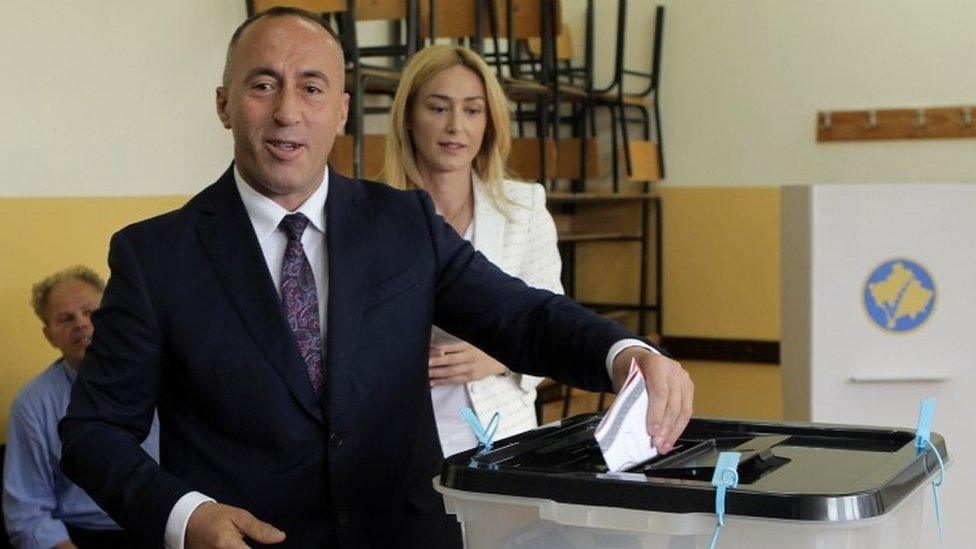
Ramush Haradinaj - pictured voting on Sunday - is accused by Serbia of war crimes
A former rebel commander wanted by Serbia for alleged war crimes has won Kosovo's parliamentary election, preliminary results suggest.
Ramush Haradinaj, a former prime minister, leads a centre-right coalition of parties that emerged from the 1998-99 conflict with Serbia.
With 70% of the votes counted, the electoral commission said his alliance had won about a third of the vote.
The left-wing opposition party Vetevendosje has about 25%, it said.
Kosovo declared independence from Serbia in 2008. It is recognised by the US and most EU countries, but not by Serbia or its ally Russia.
A victory for Mr Haradinaj, leader of the Alliance for the Future of Kosovo, would complicate relations with Serbia, which has issued an international arrest warrant against him for alleged war crimes.
Another centre-right coalition, led by outgoing Prime Minister Isa Mustafa of the Democratic League of Kosovo, stands at 25.8%.
However, Ismet Kryeziu, of the non-governmental group Democracy in Action, warned no party should celebrate too soon.
Mr Mustafa called the snap election last month after his government lost a confidence vote.
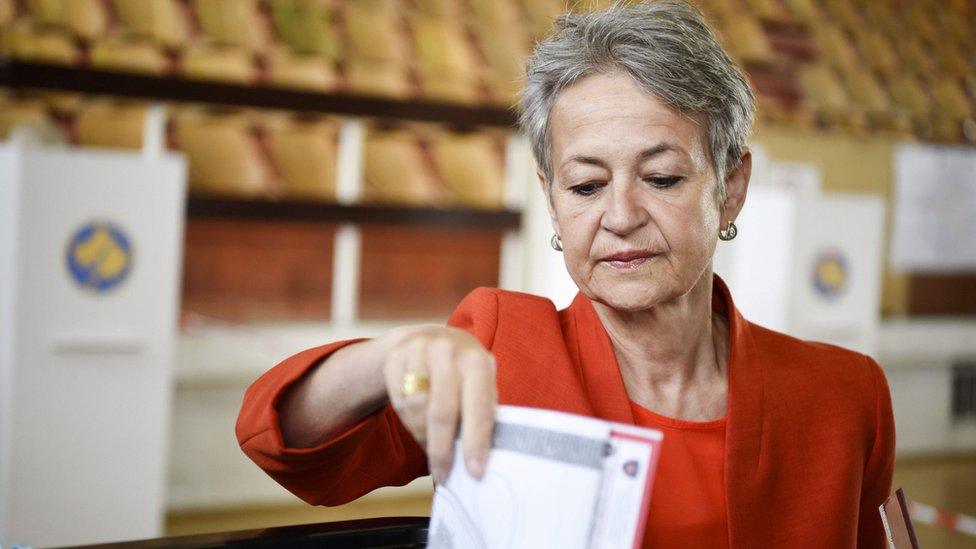
Kosovo has been recognised by 114 countries - but not by Serbia or Russia
Mr Haradinaj served as a commander of the Kosovo Liberation Army (KLA) during the war with Serbia in 1998 and 1999.
He has been tried and acquitted twice at the UN war crimes tribunal at The Hague, although Serbia said it had further evidence involving civilian murders.
Mr Haradinaj has consistently denied the allegations, and stepped down as prime minister after just 100 days in 2005 to face the charges.
Serbia has repeatedly warned it will defend "every inch" of what it claims as its territory in neighbouring Kosovo.
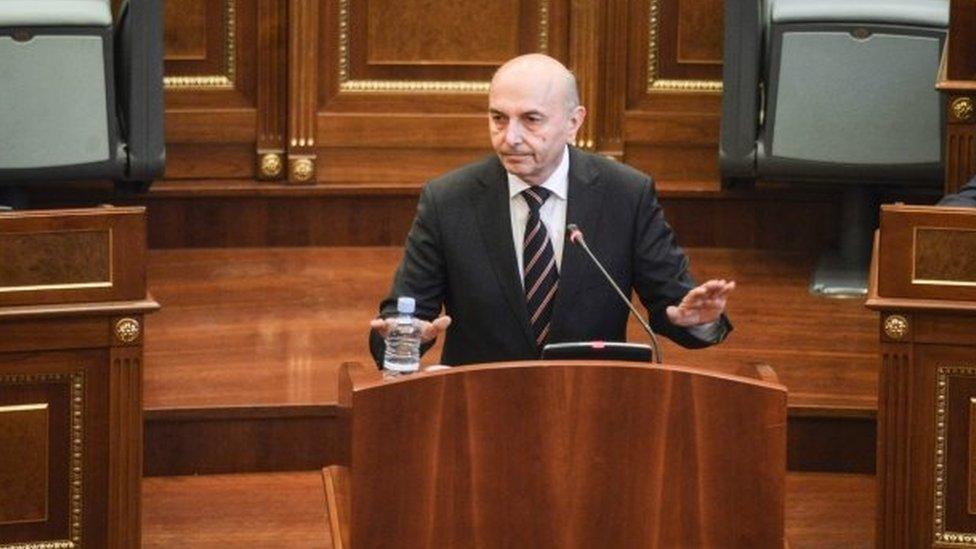
Isa Mustafa's administration has been struggling to revive the economy and reduce unemployment
About 1.9 million Kosovars were registered to cast their ballots in the third vote since independence. Nearly half a million voters live abroad.
One of the top priorities for the new government will be to reduce unemployment, which is running at 30%, and lower tensions with Serbia, a pre-condition for both countries before they can join the European Union.
The West believes that the incorporation of Western Balkan countries in the EU is the most effective way of stabilising a region blighted by war throughout the 1990s.
Kosovo has had a constant Nato peacekeeping force since 1999.
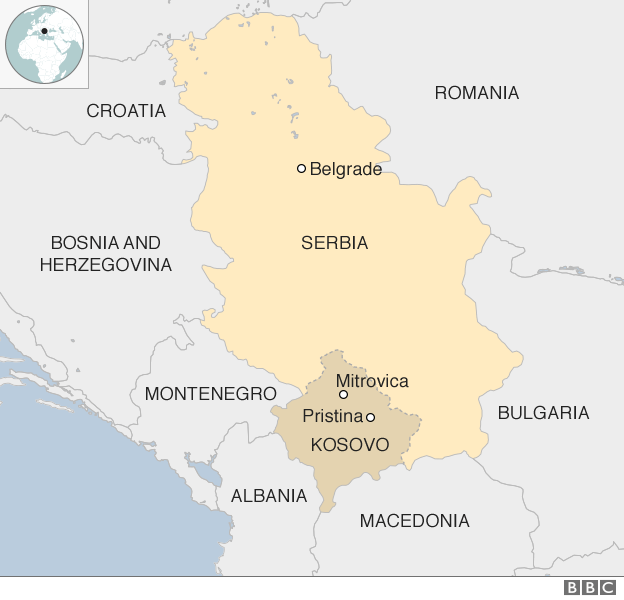

Kosovo and Serbia - key recent dates
1991 - Start of the violent break-up of Yugoslavia
1996 - Rebel Kosovo Liberation Army (KLA) steps up attacks on Serbian authorities in Kosovo - met with a Serbian crackdown, driving thousands of Kosovo Albanians from their homes
1999 - Nato bombs Serbian targets. Yugoslav Army (VJ) and Serbian Interior Ministry (MUP) forces intensify ethnic cleansing against Kosovo Albanians, who flee Kosovo en masse. VJ and MUP withdraw from Kosovo after a ceasefire agreement
2008 - Kosovo unilaterally declares independence.

- Published27 April 2017
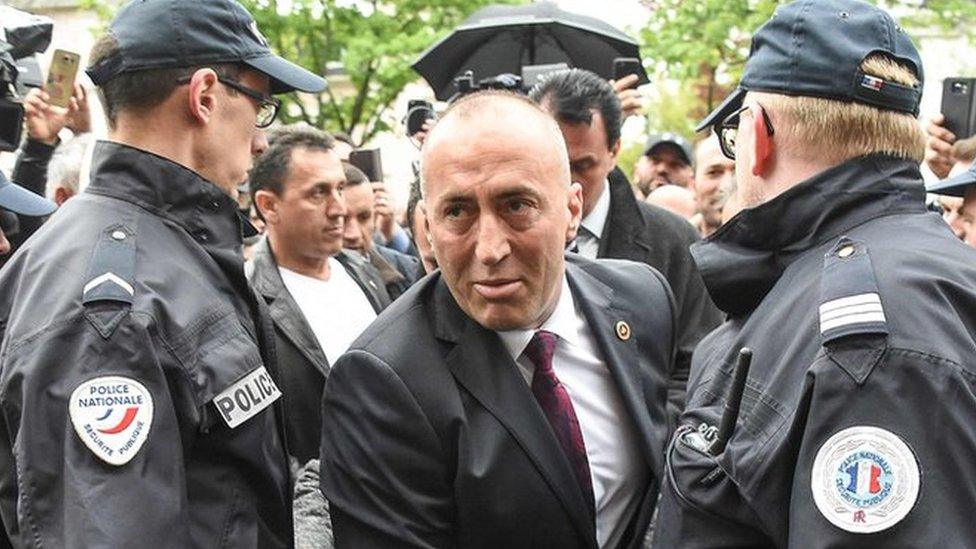
- Published15 January 2017
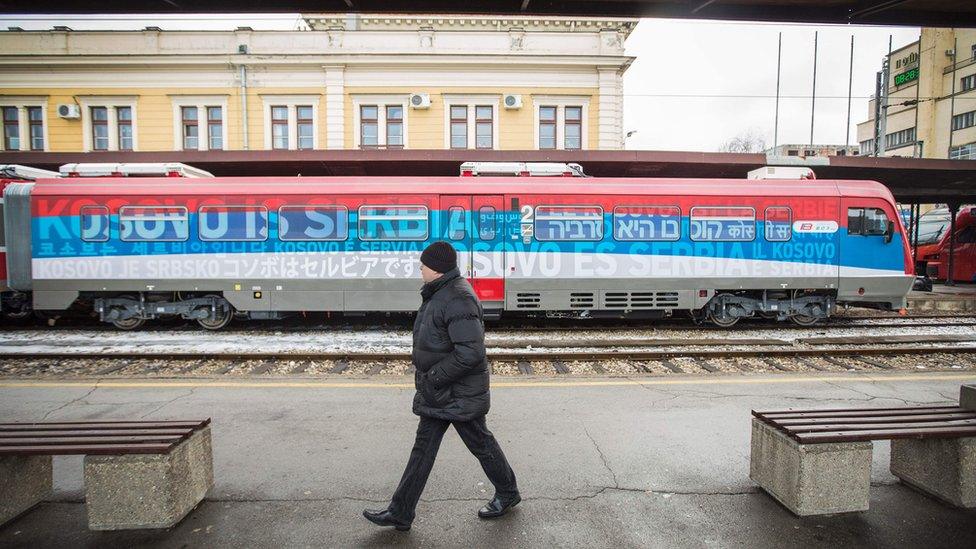
- Published12 January 2017
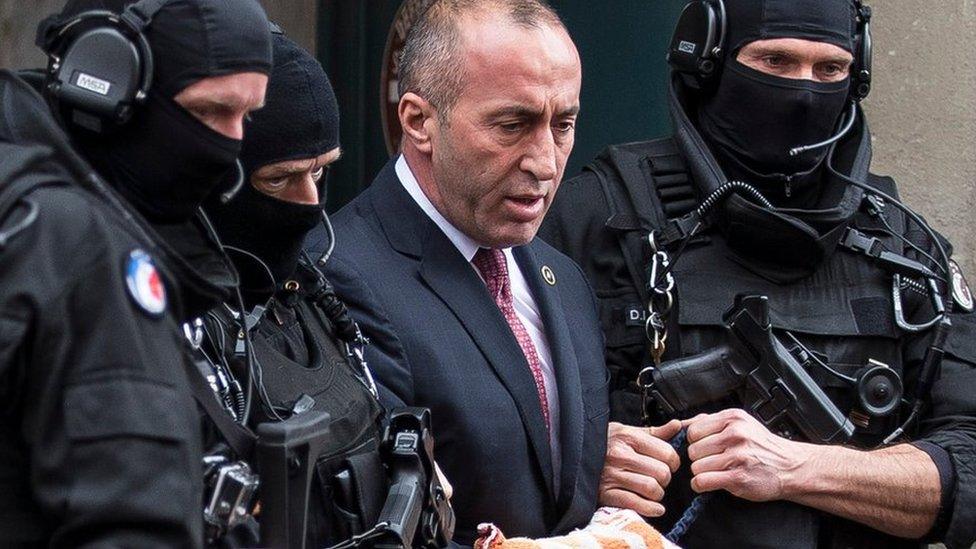
- Attribution
- Published18 October 2016
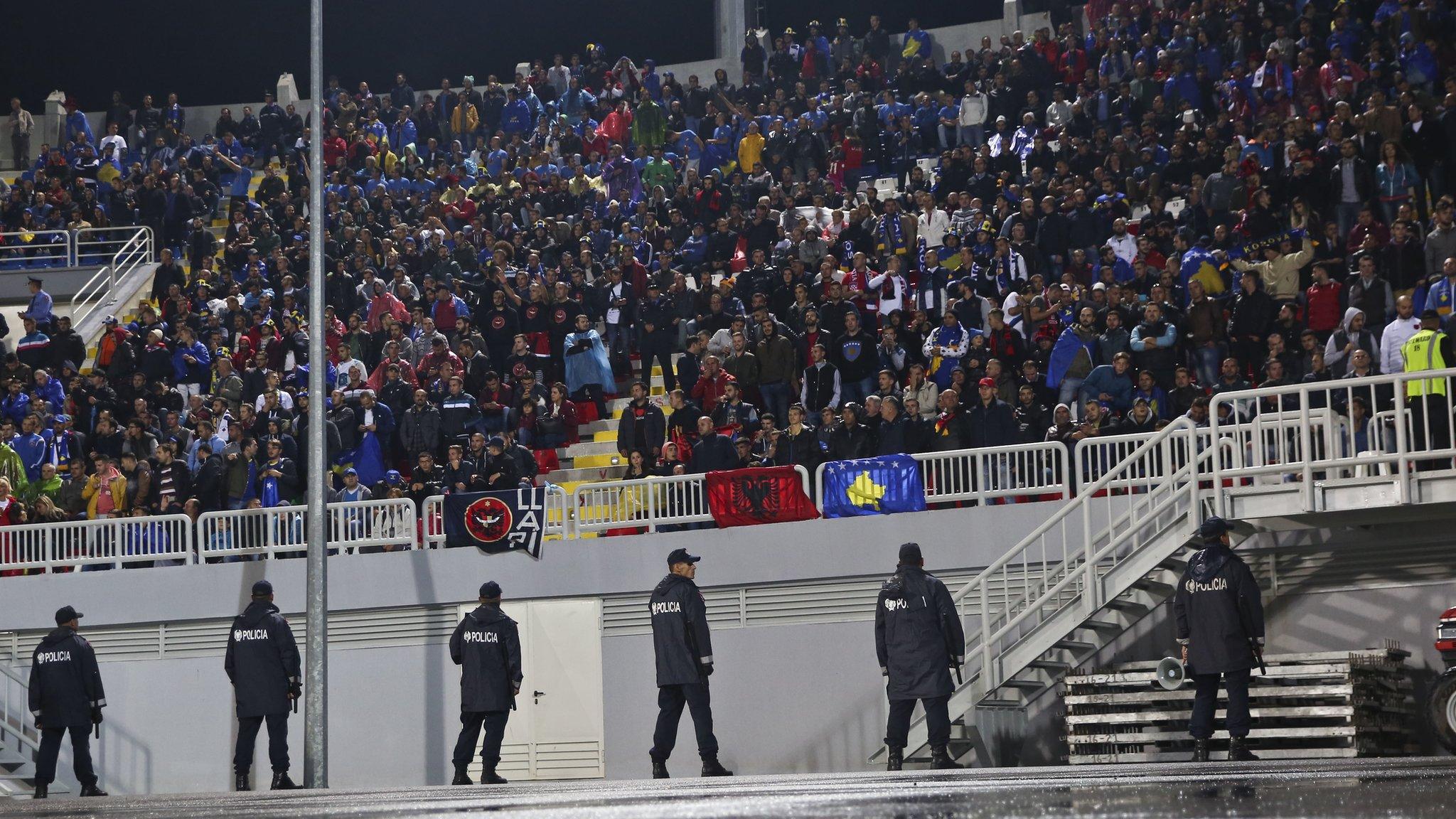
- Published13 December 2016
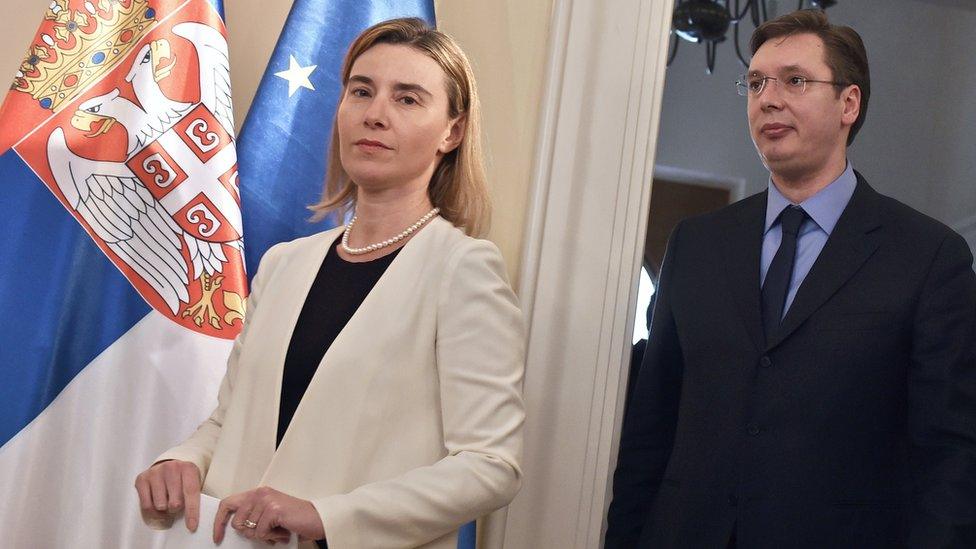
- Published29 November 2012
